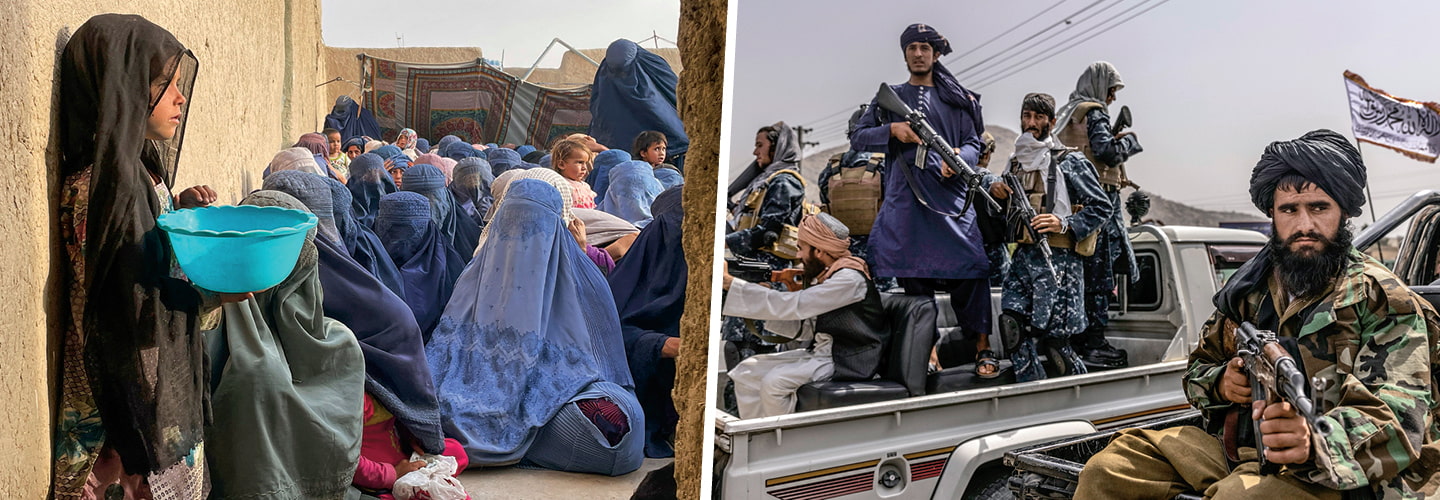She could hear the roller coasters but not ride on them.
To celebrate the end of the Muslim holy month of Ramadan in May, Zulhijjah Mirzadah, 25, had prepared a small picnic of dried fruit, packed her five children into a minibus, and navigated for two hours through the congested streets of Afghanistan’s capital, Kabul, to visit a bustling amusement park.
The entrance was as far as Mirzadah could get, however—close enough to hear the joyous screams of others enjoying the rides. The Taliban, she was told at the gate, had barred women from entering the park during the holiday.
“We’re facing economic problems; things are expensive; we can’t find work; our daughters can’t go to school—but we had hoped to have a picnic in the park today,” she says.
Women’s exclusion from the park on a day when men are allowed is among a growing list of restrictions that Afghan women have faced under the second era of Taliban rule. A few days before Mirzadah’s derailed family picnic, the Taliban had decreed that women must cover themselves head to toe when they venture outside their homes. The edict, which also urged women to stay home unless they had a compelling reason to go out, followed soon after an order requiring women who travel more than 45 miles from their homes to be accompanied by a male relative. The Taliban have also barred girls from attending middle school and high school.
“The Taliban are reneging on all their promises about an open and inclusive society,” says Bruce Hoffman, an Afghanistan expert at the Council on Foreign Relations in Washington, D.C.
She could hear the roller coasters but not ride on them.
It was the end of the Muslim holy month of Ramadan in May. To celebrate, Zulhijjah Mirzadah, 25, had put together a small picnic of dried fruit. She packed her five children into a minibus to visit a bustling amusement park. They had to travel through the congested streets of Afghanistan’s capital, Kabul, to get there. The trip took two hours.
The entrance was as far as Mirzadah could get. She was close enough to hear the joyous screams of others enjoying the rides. At the gate, she was told that the Taliban had barred women from entering the park during the holiday.
“We’re facing economic problems; things are expensive; we can’t find work; our daughters can’t go to school—but we had hoped to have a picnic in the park today,” she says.
Women are no longer allowed to enter the park on a day when men can visit. This exclusion is among a growing list of the limits Afghan women have faced under the second era of Taliban rule. A few days before Mirzadah’s derailed family picnic, the Taliban had decreed that women must cover themselves head to toe when they leave their homes. The order also urged women to stay home unless they had a good reason to go out. It followed soon after an order requiring women who travel more than 45 miles from their homes to do so with a male relative. The Taliban have also stopped girls from attending middle school and high school.
“The Taliban are reneging on all their promises about an open and inclusive society,” says Bruce Hoffman, an Afghanistan expert at the Council on Foreign Relations in Washington, D.C.

